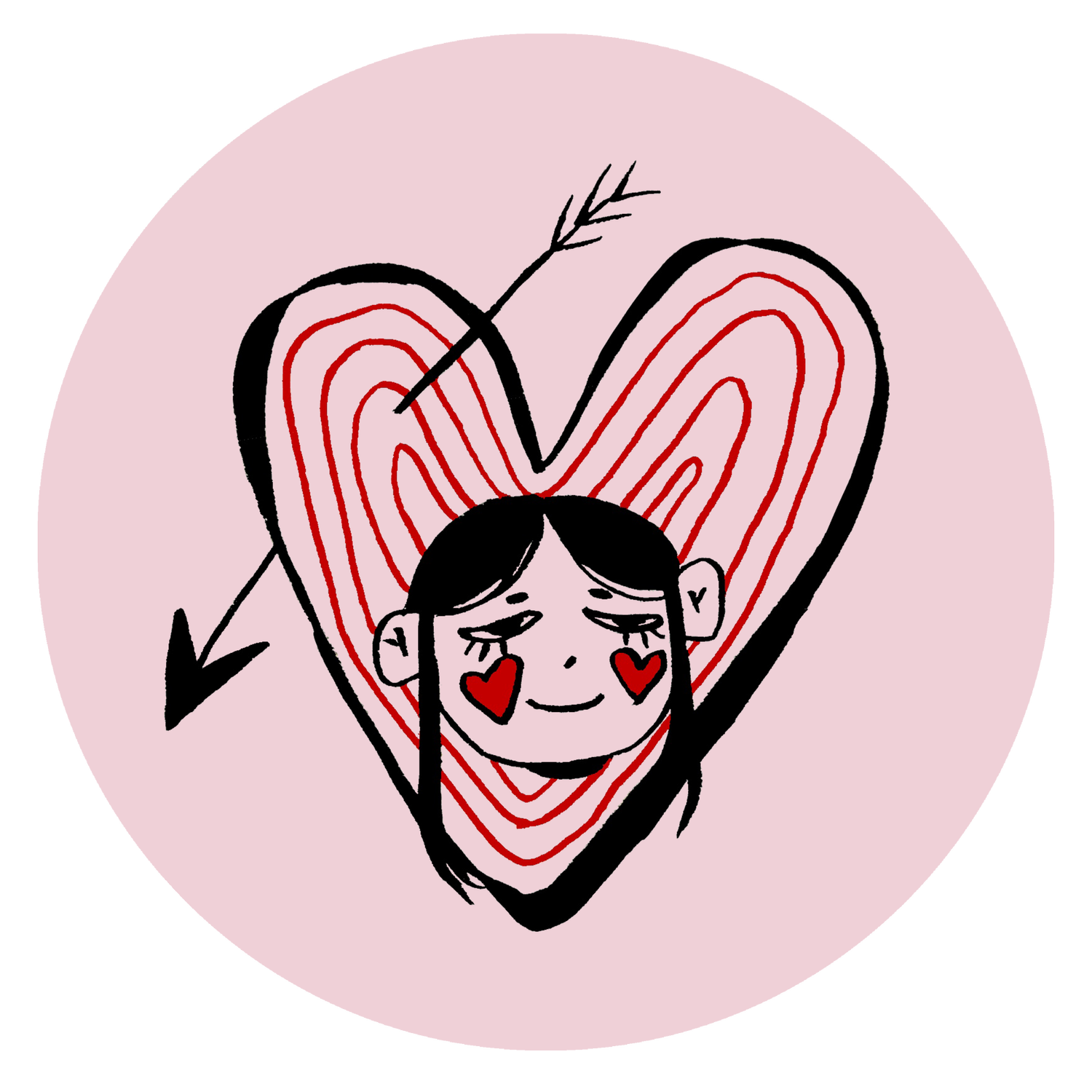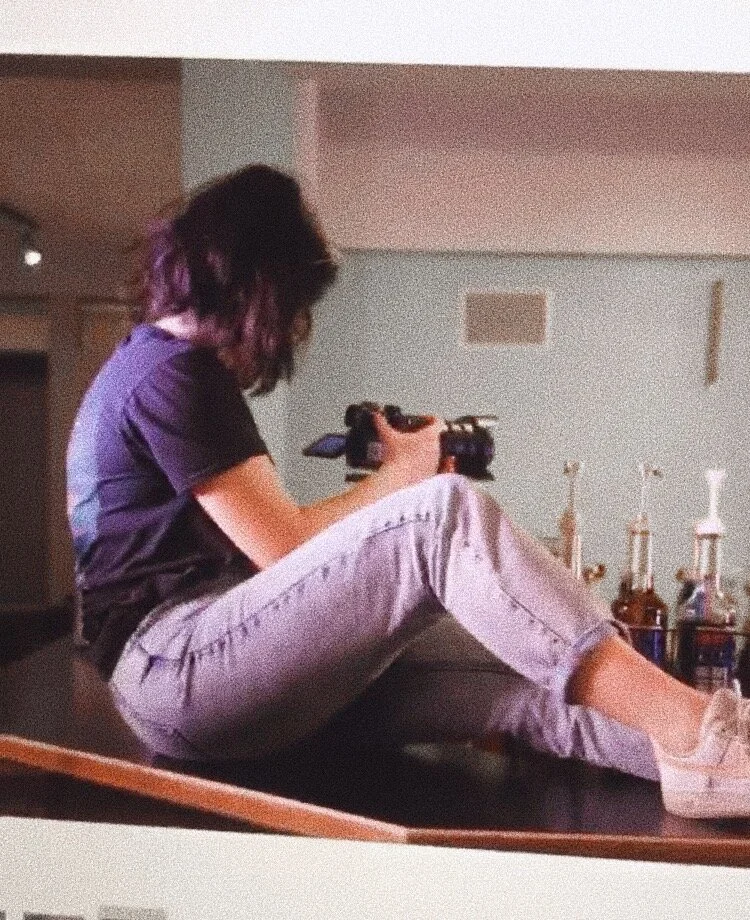Interview With Barbara Rose Chavez
Barbara Chavez is a half Ecuadorian, half Guatemalan videographer from Artesia, California. Barbie shared the origins of her art, what it’s like being a woman in a male-dominated field, and meaningful advice for pursuing creativity.
Jessi Jarrin: Firstly, can you tell us how you became interested in visual media?
Barbara Chavez: Okay, let’s go all the way back! *Laughs* It all started with my older brother. I've always admired him, and I thought he was the coolest. One spring break, he and my older cousins had an idea to make the ‘coolest Spring Break vlog ever.’ So, he bought himself a camera. And they just went and did the craziest stuff and recorded it. [W]hen he would show me how he edited videos, I'd be just mind-blown. That's how it started… I always really liked telling stories. So as soon as I started getting on the camera, I was like, “Yo, we're gonna tell stories! We're gonna make comedy sketches!” That was when I was around eleven or twelve.
JJ: What are your big future goals for your life and art?
BC: I want to be a Hollywood director. The directors that inspire me are Olivia Wilde, Bong Joon Ho, Damien Chazelle, and Lulu Wang. I love comedies. Olivia Wilde’s Booksmart is a perfect example of something that’s funny, but also cinematic. I saw that film and I was like, “That’s what I wanna do.” I’ve also made it a point in everything I make to be as inclusive as possible because I know the industry is not, and we need to change that. There are so many stories that need people of color. When Chicanx or Latinx stories get told, it's always like a ‘crossing the border’ or migration story, and as important and as proud as we are of that story, we also do other things! We have adventures [and] we fall in love. We do more, we are more than that.
JJ: I absolutely agree. What are some smaller, more personal goals you have for yourself?
BC: [One] goal of mine has to do with my mental health. For example, body image issues used to tear me up. It’s been a while since I've been torn up about it [and] I'm proud of myself for that. As long as I am happy and healthy, you know? I’m learning to trust my body. Most women I know struggle with body issues and some kind of eating disorder, and we just don’t talk about it.
JJ: As a woman and a woman of color, how do you think that your identity impacts your art, especially in a male-dominated field?
BC: Well, for one, I recognize my privilege as a white passing Latina, but yes, of course, my identity is very evident in my art. For example, I go to a predominantly white university in Washington, but for my student short film, Bittersweet, I was adamant about having Latinx actors. As a woman, my experience in this field is that sometimes I have been the only woman in my film classes. I remember one time I was with my best friend Michael. He and I were touring another film school, and the guide came out and he only talked to Michael, and I was like, “Hello, I’m here!” The guide went, “Oh shoot! That was sexist of me, huh?” I have other women videographer friends and they’re so good, but for some reason I noticed we, as women in film, sometimes feel less bold. In my experience, a lot of men in the field seem to be bolder and more confident than women, and I think it’s because of representation. I also find myself assuming that a guy is gonna be better than me, but I want to change that. I want to be like “Don’t be like that, sis! Push yourself. You know what you’re doing.”
JJ: How has your art been affected by the current pandemic?
BC: I feel like the pandemic, in a way, helped me reach out a bit more… I actually ended up talking to somebody at my university. He heard I did videography and needed some video work for the church he pastors at. That was the first time that someone paid me to shoot videos for them. I started seeing myself as ready to start doing freelance work. This is an opportunity that I don't think I would ever would have gotten if I was still in school and doing school projects. Since the pandemic, my school let me take all the gear for the quarter, so I got a nice camera to use and reflective gear. I actually used that Panasonic GH 5 and reflective gear to make my first fashion film, Deserted.
JJ: Do you have a message that you want your work to portray?
BC: Overall, I would say: self-express. Play. Don’t take yourself too seriously. Be ridiculous. Don’t be afraid to express yourself. Be weird. All people have stories to tell that matter. I really love people. [Their] stories [are] worth telling.
JJ. What do you find is your biggest struggle within your art?
BC: My biggest struggle would honestly be with my self-confidence. I have these days where I feel like I'm so good. Then, there are other days where I just feel like, like: “Maybe I should have let my calling go to voicemail.” *Laughs* Honestly, when people tell me they like my work, I ask, “Oh, you really think that?” I need to work on my lack of self-confidence because it prevents me from making more stuff.
JJ: What advice would you give other up-and-coming creatives?
BC: I think my advice would be to not be afraid to make stuff that sucks. Because, you know, how are you gonna get anywhere if you think it has to be perfect? I gained a lot of confidence when I realized that if my video comes out bad, it's not because I suck as an artist. It’s because I know what looks good. It's okay to be disappointed sometimes, but don’t be disappointed in yourself.
JJ: What advice would you give to Generation Z?
BC: Don't let what previous generations say hold you down. Don't let people say “Well, that's just how society works.” I get that you alone can't fix all the injustices or save the environment by yourself. But, just as a human being, I feel [that] you have a responsibility to live your best life, to be kind to everybody, and to have empathy. It’s also important to take a step back and realize that you’re not the only person on this planet. We’re all going through a lot, so try to treat everyone with kindness.






